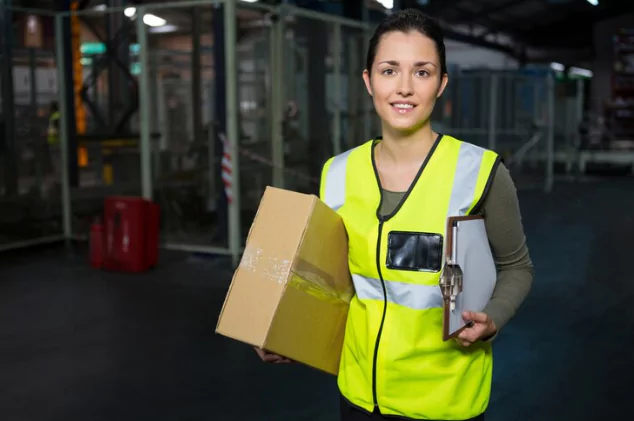22 May

What Is a Logistics Model and Why Does It Matter?
A logistics model defines how your supply chain is structured—from sourcing and warehousing to delivery and returns. It’s not just a technical term; it’s the backbone of how goods move, how inventory is tracked, and how customers are satisfied. Choosing the right model—whether 3PL or 4PL—can make the difference between a streamlined operation and a chaotic mess. At stacketlens, we help businesses align their logistics approach with growth goals, industry needs, and customer expectations.
- How Do 3PL and 4PL Models Differ?
- What Role Does Inventory Management Play in Logistics?
- How Does Supply Chain Optimization Impact Efficiency?
- What Technologies Are Transforming Warehouse Operations?
- How Do E-commerce and Order Fulfillment Influence Your Logistics Choice?
- How Are Packaging and Delivery Services Managed in Different Models?
- Can a 3PL Model Support Supply Chain Integration?
- What’s the Role of a Warehouse Management System in Each Model?
- How Can Businesses Choose the Right Logistics Model?
- Final Thoughts: Should You Go 3PL or 4PL?
How Do 3PL and 4PL Models Differ?
Understanding the distinction between 3PL and 4PL solutions is essential when optimizing your logistics. A third-party logistics (3PL) provider handles specific services like warehousing, transportation, or fulfillment. On the other hand, fourth-party logistics (4PL) providers manage the entire supply chain, overseeing vendors, technology, strategy, and execution. While 3PL services offer flexibility and cost efficiency, 4PL providers function more like consultants, delivering end-to-end oversight. At stacketlens, we offer both models depending on the complexity and scale of your operations.
What Role Does Inventory Management Play in Logistics?
In any logistics model, inventory management is a central pillar. Poor inventory visibility leads to stockouts, overstock, and unhappy customers. 3PL providers typically integrate tools to manage warehouse-level stock, while 4PL partners offer a wider view, overseeing inventory across your entire distribution network. With stacketlens, our systems offer real-time inventory updates, predictive restocking, and analytics that help you respond to demand with precision.

How Does Supply Chain Optimization Impact Efficiency?
Supply chain optimization isn’t a one-time event—it’s an ongoing process of improving every stage, from procurement to delivery. A solid logistics model integrates cost control, delivery speed, and inventory flow in a cohesive system. 4PL providers are often better suited for this since they can assess performance across all vendors and nodes. However, a highly capable 3PL service like stacketlens can deliver impactful optimization using smart tech and scalable strategies.
What Technologies Are Transforming Warehouse Operations?
Today’s warehouse technology and operations have moved beyond simple barcode scanners. Automated picking systems, IoT sensors, AI-powered forecasting, and real-time dashboards are changing the way warehouses function. These tools enhance the speed and accuracy of order fulfillment—crucial for both 3PL and 4PL models. At stacketlens, we prioritize innovation to ensure our clients benefit from future-ready warehouse environments tailored to their operational needs.
How Do E-commerce and Order Fulfillment Influence Your Logistics Choice?
E-commerce and order fulfillment requirements can help determine whether a 3PL or 4PL model is best. Fast shipping, high order volumes, and frequent returns are standard in e-commerce. A 3PL provider often specializes in fulfilling such needs efficiently. However, if your e-commerce business is scaling fast or operates globally, a 4PL provider may offer better value by coordinating logistics partners, optimizing shipping lanes, and managing compliance. stacketlens helps online businesses weigh these factors before choosing the right path.
How Are Packaging and Delivery Services Managed in Different Models?
In a 3PL model, packaging and delivery services are typically handled in-house, with standardized practices tailored to each client. A 4PL model, however, might work with various providers to choose the most cost-effective or sustainable options. Each approach has benefits depending on how complex or specialized your packaging and delivery needs are. At stacketlens, our packaging is designed not only for protection but also for speed, branding, and customer satisfaction.
Can a 3PL Model Support Supply Chain Integration?
Yes, a well-equipped 3PL service can support robust inventory and supply chain management. While 4PL solutions bring high-level visibility, many modern 3PL providers have evolved to offer advanced systems, seamless API integration, and customized dashboards. This makes them a viable choice for businesses that need flexibility without full-scale outsourcing. stacketlens bridges this gap by offering high-end tools within our 3PL offering, creating a near-4PL experience for clients who want to stay agile.
What’s the Role of a Warehouse Management System in Each Model?
A warehouse management system (WMS) serves as the digital brain of logistics operations. In both 3PL and 4PL models, WMS platforms ensure order accuracy, monitor inventory movement, and generate reports. However, in a 4PL model, the WMS is often part of a broader system that includes transportation management and demand planning. At stacketlens, our WMS integrates smoothly into our client workflows, offering transparency and control whether you’re using 3PL or 4PL logistics.

How Can Businesses Choose the Right Logistics Model?
There is no one-size-fits-all answer when it comes to choosing a logistics model. If you want full control over operations with a need for day-to-day warehousing and delivery services, a 3PL may be perfect. If you require high-level coordination across multiple logistics vendors and want to outsource strategy, a 4PL is a better fit. Key considerations include your business size, industry, growth goals, and product complexity. The experts at stacketlens are here to evaluate your needs and guide you to the model that ensures efficiency and scalability.
Final Thoughts: Should You Go 3PL or 4PL?
The debate between 3PL vs. 4PL isn’t about which is better—it’s about which is better for you. Smaller businesses often find that 3PL providers give them the tools and speed they need without overcomplicating the process. Larger or fast-growing enterprises may benefit from a 4PL model that oversees multiple moving parts. Whichever path you choose, aligning your logistics with your overall business strategy is key. At stacketlens, we help our clients not only understand the difference but implement the right logistics model for long-term success.

